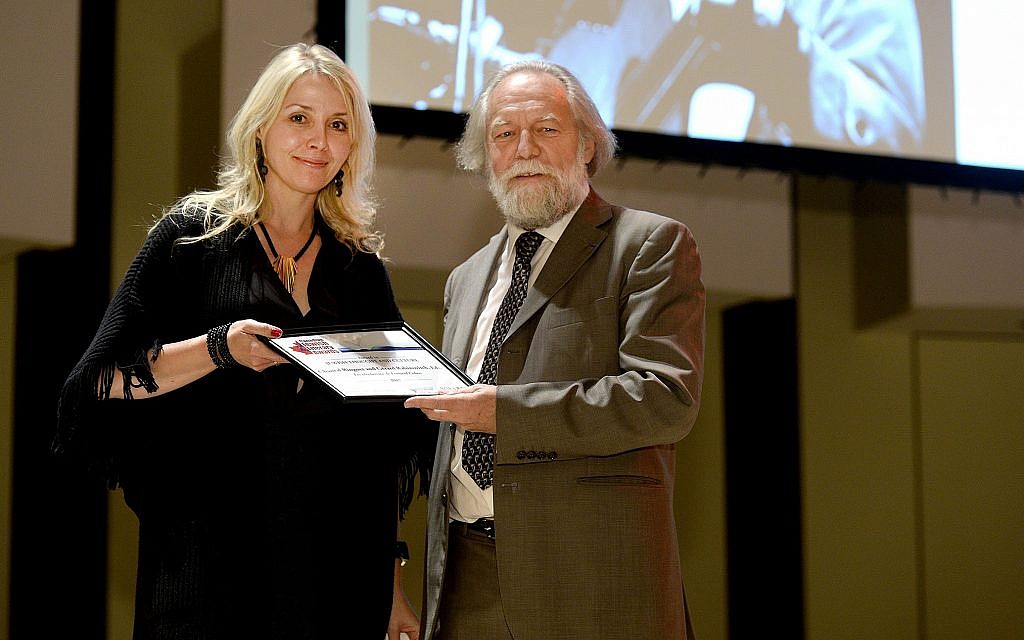MONTREAL — Israel, Jews and Jewish culture were far removed from Chantal Ringuet’s reality as she grew up an only child in a French-speaking Catholic family in Quebec City. There, she attended private Catholic schools and had no Jewish friends or neighbors.
When Ringuet was 14, she discovered Leonard Cohen on a TV music show that introduced her to his album “I’m Your Man.” It struck a chord in her. Initially, all she knew was that he came from Montreal, unaware he was Jewish. Little could she imagine then the importance Cohen would eventually take on in her life.
Since 2005, as a Montreal-based writer and scholar, Ringuet, who is in her 40s, has immersed herself in projects with a strong Jewish bent. In the process, she’s become an unlikely champion of local Jewish heritage — especially Yiddish literature and Leonard Cohen.
In a sense, it all began with her near-epiphany as a teenager seeing Cohen on TV for the first time.
“What was very striking at the time for me were his black and white videos,” says Ringuet during a recent interview with The Times of Israel in a cafe across the street from Cohen’s home in Montreal, near where she lives. “Nobody else seemed to be doing that in pop music at the time. I really loved his songs. What also struck me was his character. He had a lot of charisma.”
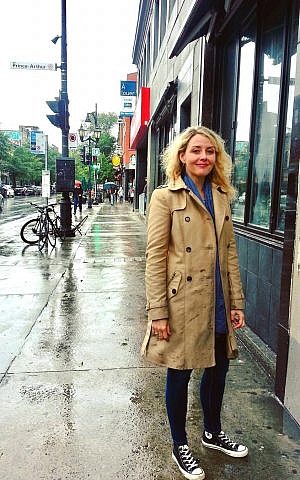
While in high school, learning about the Holocaust made a strong impact on her. When a teacher screened “Night and Fog,” the 1956 documentary film by French director Alain Resnais that shows the horrors of Nazi atrocities against the Jews, it affected her.
“The film deeply moved me,” says Ringuet. “I just thought that what the Nazis did to the Jews was really ‘une injustice profonde’ [a profound injustice].”
In 1994, after a year studying Literature and Philosophy at a local university, she left her hometown and moved 260 kilometers (161 miles) westward to Montreal to take Literary Studies at the Université du Québec à Montréal (UQAM).
“By the time I moved there, Leonard Cohen was very important to me,” Ringuet recalls. “I was listening to his songs a lot.”
In 2001, while doing her PhD in Québécois literature, she discovered Montreal had been home to a vibrant Yiddish culture in the first half of the 20th century.
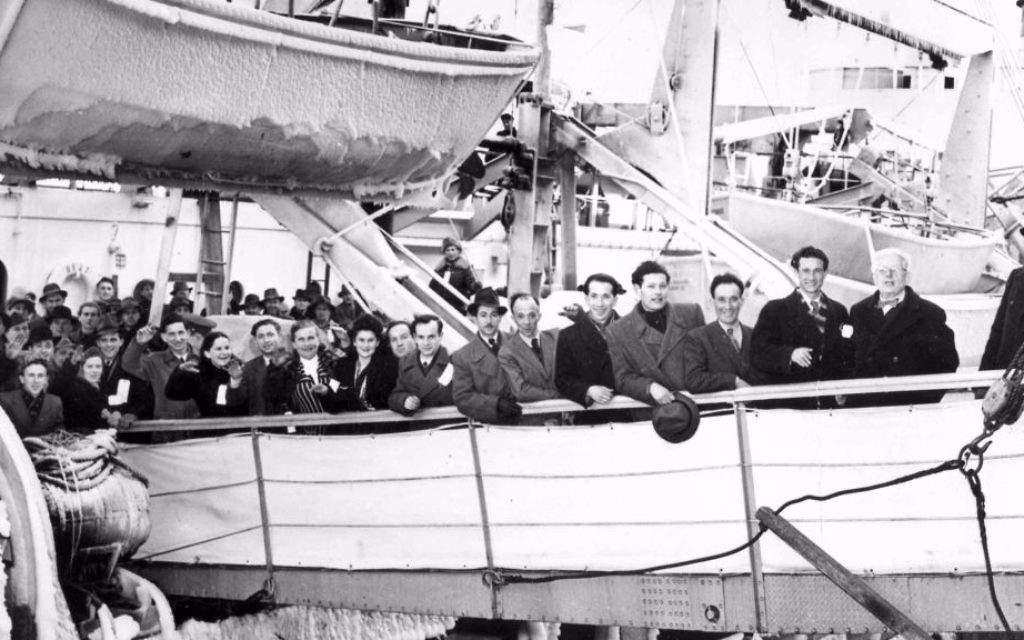
“It was a real revelation for me,” says Ringuet, who attributed her lack of awareness of this cultural heritage to it not being available in French. “It fascinated me and changed my perception of Montreal. I started walking in the city with all this in mind, trying to find traces of what used to be a Jewish, especially a Yiddish, city.”
Part of her interest in Yiddish writers and poets stems from their link to Montreal’s modernist movement. Eventually, this led her to discover the city’s notable Jewish literary figures writing in English, including A.M. Klein and Irving Layton, both of whom were mentors to Leonard Cohen, as he made a name for himself as a poet in the late 1950s.
Ringuet, who has written and lectured extensively about Cohen, readily admits he’s had a significant presence in her life. In May, she was invited to Paris to take part in several live events and media programs devoted to his legacy.
“In a way, Cohen opened the way to Montreal Jewish culture for me, even if he didn’t have a direct connection with Yiddish writers,” says Ringuet. “I realized he had an important influence on me. When he died [in 2016], it really affected me. It was like someone in the family had died. That’s how I felt but I wasn’t the only one. In Montreal, it seemed we were all grieving for him.”
Despite living near Cohen’s Montreal home, Ringuet only met him once, in a furtive encounter. It occurred on a winter evening in Montreal in 2007, by which point Cohen was spending most of his time in Los Angeles.
“It was about 9 p.m. when I ran into him on Boulevard St. Laurent,” says Ringuet. “It was snowing and there weren’t many people walking on the street. I was deep in my thoughts as we passed each other. I looked at him and I thought, ‘Oh my God, it’s Leonard Cohen.’
“He was much shorter than I expected. He smiled at me and I wondered, what should I do? In part, out of a respect for his privacy, I just continued walking and I thought, ‘Wow, that was so beautiful.’ Now, when I think about it, I believe it was maybe better that way. It can be disappointing when you meet the real people you admire as artists, especially writers,” she says.
A yiddische kopf
Such is Ringuet’s expertise in Jewish culture, command of Yiddish and passionate embrace of Israel, she’s accustomed to people either mistaking her for a member of the Tribe or suggesting she convert. In contrast to her sheltered Catholic upbringing, Jews and Jewish subjects now dominate her life.
She wrote a book on Yiddish Montreal that was the first-ever cultural overview of the subject in French. She edited the first anthology of Canadian Yiddish literature in French that included translations she did herself after learning Yiddish. She won a Canadian Jewish Literary Award for a book she co-authored on Leonard Cohen.
She’s a Research Associate at Concordia University’s Institute for Canadian Jewish Studies in Montreal, and across town, she’s taught a course on Cohen at McGill University. She did a post-doctorate in Canadian Jewish Studies at the University of Ottawa. She ran in a marathon to raise funds for the Montreal Holocaust Center and in memory of Jewish intellectuals deported to Nazi concentration camps in World War II.
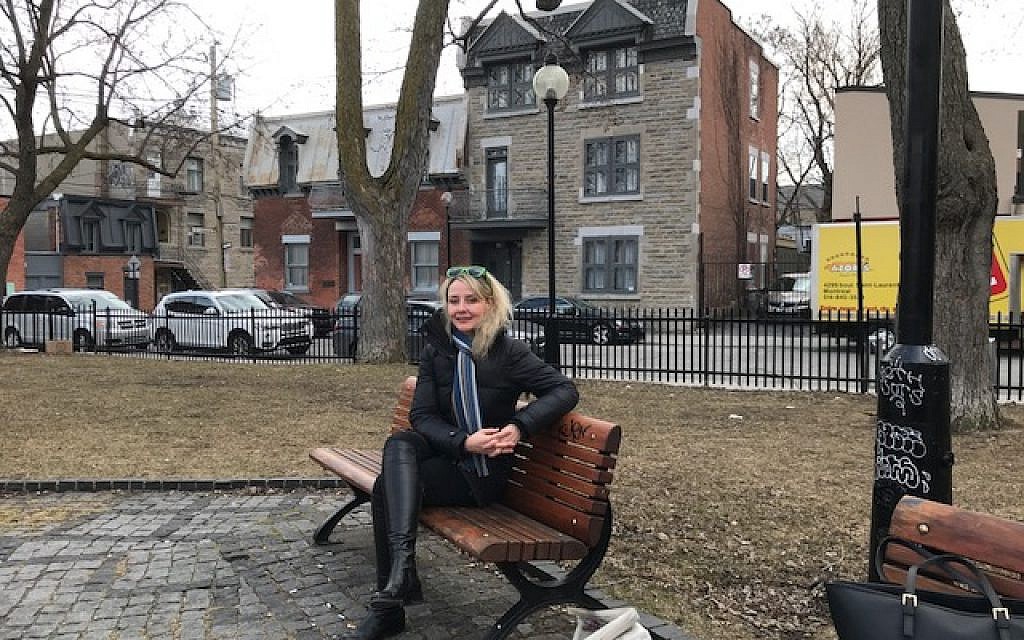
Ringuet’s focus isn’t confined to Montreal or Canada. She published a book on contemporary Israel — where she’s spent considerable time and studied Hebrew. She completed a research project on Jewish women writers in North America at the Hadassah-Brandeis Institute in Boston. She received a fellowship at the YIVO Institute for Jewish Research in New York where she discovered a manuscript in Yiddish by legendary artist Marc Chagall which she helped translate for a French book.
And that’s just a partial list.
Ringuet always seems to have Jewish subjects on her mind and prominent in her work. Certainly, not the usual trajectory of someone who grew up in a provincial milieu with little awareness of Jewish life or Jews until she was a young adult.
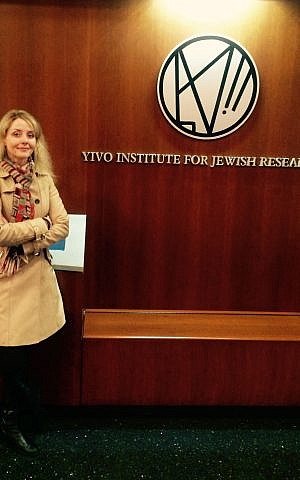
“People have told me that due to my deep involvement with Jewish culture and knowledge of Jewish history, I should convert to Judaism,” says Ringuet.
“I’ve never thought seriously of converting and I never will because I’m not looking for a new identity. If I were ever to convert, I would lose my distance to work on Jewish culture. My identity is a francophone born in Quebec City and that’s it,” she says.
This fall, Ringuet will arrive at the next station in her journey of Jewish exploration when she becomes a writer-in-residence at the Schusterman Center for Israeli Studies at Brandeis University. She’s following in the footsteps of Israeli writers Etgar Keret, Sayed Kashua and Ronit Matalon. While there, Ringuet will work on her next book, this time in English, which will focus on Jerusalem and the Middle East.
Her most recent book, “Un pays où la terre se fragmente,” came out last year in French, her mother tongue. It’s an eclectic look at Israeli life, based on her travels throughout the country and the many people she met from different backgrounds — secular and religious; Jewish, Muslim and Christian — along with a range of experts on the region’s geo-political reality.
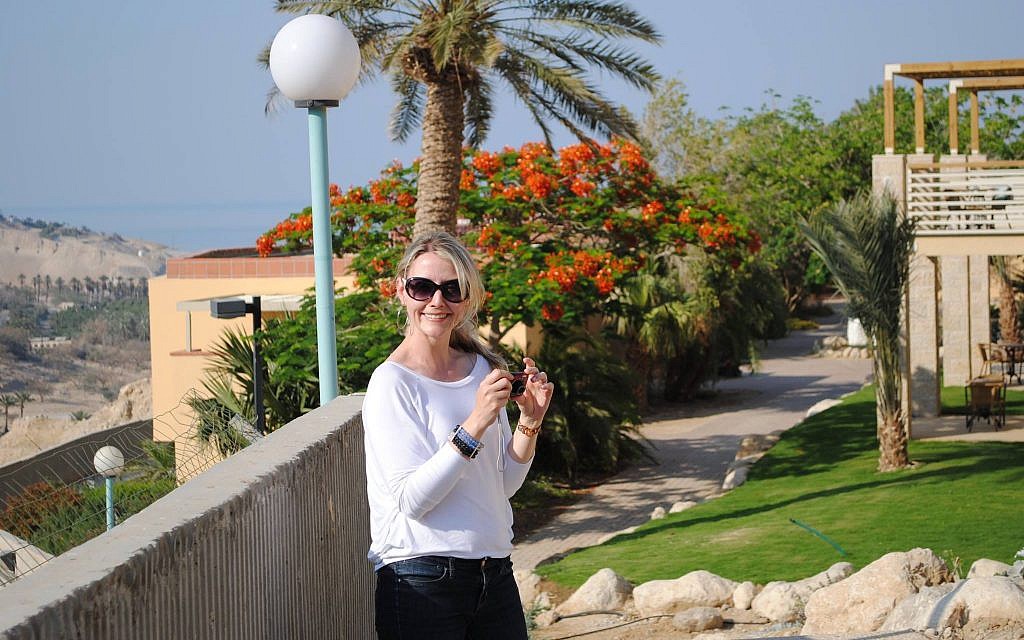
Ringuet has been to Israel six times, including a four-month sojourn in 2012 when she studied Hebrew in Jerusalem. During her visits, she’s explored much of the country and met many Israeli writers, including David Grossman and Etgar Keret.
“I like so many things about Israel,” says Ringuet in fluent English. “I like the intensity, which is so rich, the geography, and the vibrant cultural and literary scene.
“A.B. Yehoshua was right when he said Israel is such an interesting place that if you want to write a novel, that’s where you should go. You have so many stories there. Everyone is a character in Israel. The country is so new and yet you have all these people with so much history, with their personal dramas, traumas and who also have a rich cultural background,” she says.
Ringuet, who once thought seriously about becoming a psychoanalyst, is sensitive to the complexities and challenges of life in Israel.
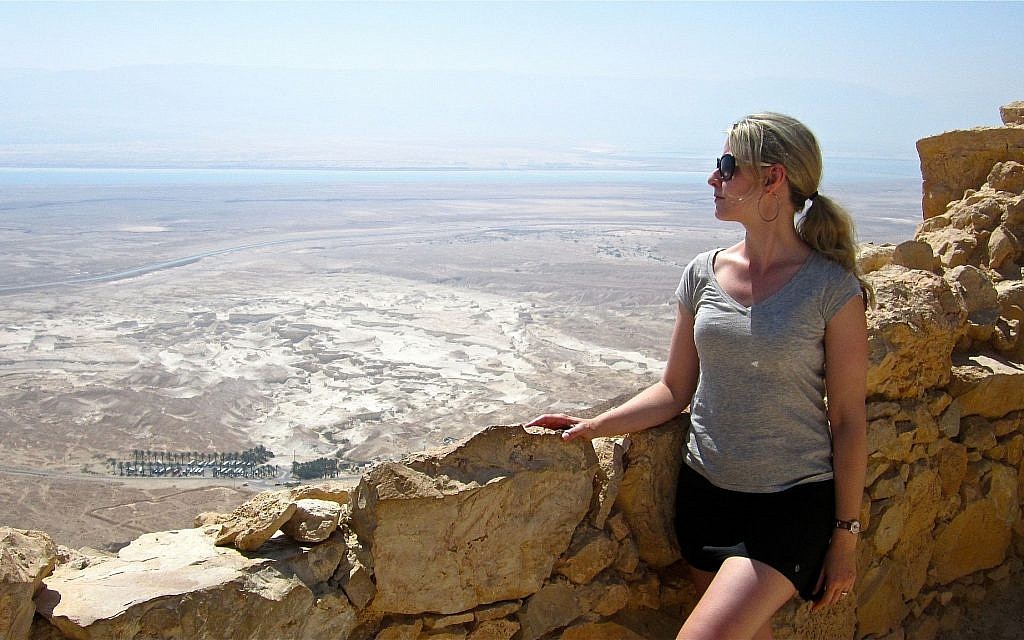
“All these aspects melting together creates something so unique, including lots of tension between the different communities, such as the secular and the Hasidic,” says Ringuet. “At a certain point, you wonder how can there be so many different pains in such a small country. So many people you meet there have lost someone close in war or in a terrorist attack. It’s very complex. Life is fragile when you’re in Israel. Here in North America, we can forget that all the time.”
Due to her firsthand experience and what she learned about the Israeli-Palestinian conflict while in the region, she often defends Israel in Quebec where many French-Canadians seem ill-disposed to it.
She finds that some people, more out of a nationalist reflex than well-informed ideological conviction, feel more connected to the Palestinian cause. They perceive it as vaguely analogous to the Quebec independence movement, which is driven by French-Canadian historical grievances of discrimination at the hands of the English.
“When the subject of Israel comes up in discussions, I often have a different opinion from others,” says Ringuet, who describes herself as a cultural translator. “In the [French-language] media coverage in Quebec, everything is frequently simplified. There’s a black and white image presented of Israel and Palestine. Israel is portrayed as the wicked one and the Palestinians are the victim.
“I’m not saying there’s no oppression of Palestinians, such as described by David Grossman, one of my favorite Israeli writers. In a recent TV documentary, he said when a nation oppresses another one for 50 years, the situation becomes very dangerous because at a certain point you don’t see that you’re oppressing them anymore,” she says.
Ringuet sometimes becomes exasperated by what she hears.
“Many people express loudly their opinion on the Israeli-Palestinian conflict with only a minimal knowledge of its history and the real issues involved,” she adds. “What shocks me in this type of discussion is not the support expressed for the creation of a Palestinian state, which I share, but the highly negative perception of Israel which certain people feed to the point of demonizing it. The reality is much more complex than the way it’s presented in the media or in how some people talk about it.”
Not the only gentile Quebec francophone crazy about Yiddish
For all the attention she’s received as a gentile Quebec francophone immersed and authoritative in Jewish culture, Ringuet acknowledges she’s not the first. That distinction belongs to historian and writer Pierre Anctil, whom she met while working on her post-doctoral research on the Yiddish language and Montreal Jewish writers.
A history professor at the University of Ottawa, he’s a specialist of Montreal’s Jewish community and Yiddish literature, some of which he’s translated into French. With their mutual interest in a common subject, it led to a meeting of minds and eventually much more. Last spring, Ringuet and Anctil celebrated their 10th wedding anniversary.
“Some people probably think our love story is at the origin of my interest in Jewish culture,” she says. “Not at all. I first got interested in the topic and was already studying it intensely when I met my future husband. He was the first Quebecois francophone without any Jewish background to get really involved with Jewish and Yiddish studies and become an expert.”
Sometimes they join forces on projects. They co-edited a special issue of a Quebec literary journal (Les Ecrits) devoted to Yiddish literature for which they translated the work of four Jewish writers from Yiddish into French. It will be published in the fall.
Another joint collaboration: a new edition of Sholem Shtern’s “Voyage to Canada,” which Anctil translated from the Yiddish into French, with a preface written by Ringuet. The book will appear in August.
Ringuet’s pursuits surprise those who wonder why anyone, especially a non-Jew, would be so drawn to Yiddish — a language considered by many to be obscure, marginal and near extinction.
“Yiddish was the language of an important literary tradition in Montreal,” she says, explaining her interest. “It was second to New York in North America as a center for Yiddish literary and artistic creativity. Also, Yiddish has such an evocative and complex history as the language for much of the Diaspora.”


